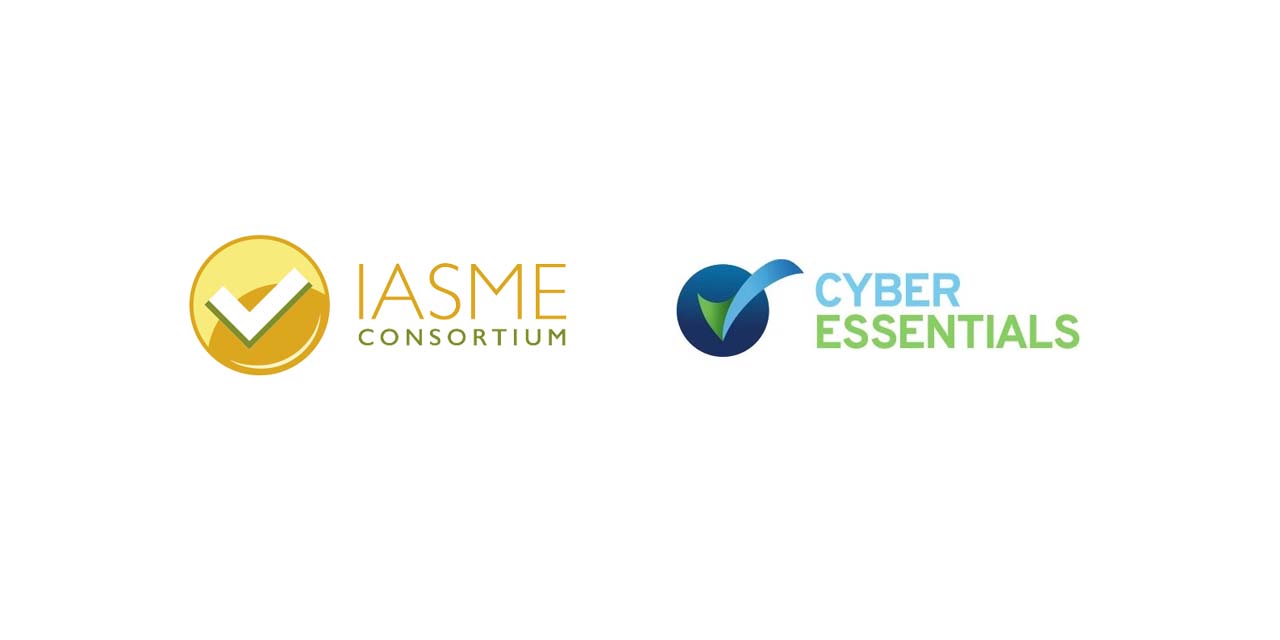3 min read
IASME Cyber Essentials FAQs
IASME Cyber Essentials was introduced by the UK Government to help small businesses tackle cyber threats and prove to their customers and clients...
Essential IT Consulting Services: An Overview:
In the dynamic world of business technology, small businesses face unique challenges that require expert IT consulting to navigate successfully. Partnering with a Managed Service Provider (MSP) presents a cost-effective way for small businesses to access a suite of IT consulting services comparable to that of larger firms. An MSP can either bolster the capacity of an existing in-house IT team by handling complex, specialised tasks or potentially replace the need for an in-house team altogether, leading to significant cost savings.
By working with an MSP, small businesses gain strategic IT planning tailored to their specific needs, ensuring that their technological resources align with business objectives. Utilising an MSP's comprehensive support can streamline operations, optimise network management, and provide preventative as well as responsive cybersecurity solutions. Moreover, MSPs can facilitate access to the cloud services, communication and collaboration tools necessary for contemporary business demands.
MSPs also assist with managed IT procurement, custom software development, and the essential continuity planning that safeguards against data loss and downtime. They can provide specialised technology training and support as well as data management and analytics to inform strategic decisions, making them an indispensable ally for small businesses aiming to thrive in a competitive market.
Strategic IT Planning is the cornerstone of a productive partnership between a small business and a Managed Service Provider (MSP). It ensures that technology investments are aligned with business goals and delivers a structured approach towards future technology adoption.
Business IT Alignment is paramount for small businesses to thrive in a digital economy. An MSP ensures that a company's technology initiatives are directly linked to its business strategy and objectives. They systematically assess business processes and current IT capabilities, identifying areas where technology can enhance efficiency and competitiveness.
Creating a Long-Term Technology Roadmap involves plotting a course for a company's technology framework that supports scalable growth. MSPs play a critical role here; they employ their expertise to carefully forecast technological trends and plan out a timeline of upgrades, migrations, and integrations. This proactive planning seeks to prevent obsolescence and minimise disruptions due to unforeseen technology changes.
Managed Service Providers (MSPs) offer extensive IT support, ensuring businesses receive both proactive and reactive solutions tailored to their needs. This service encompasses various technical assistance avenues, helping to enhance productivity and reduce downtime.
MSPs provide Help Desk Services that serve as a primary point of contact for all IT-related queries and issues. Businesses gain access to:
In instances where remote support does not suffice, On-Site Technical Assistance ensures that:
Partnering with a Managed Service Provider (MSP) ensures small businesses benefit from a robust barrier against cyber threats, offering a blend of expertise and cost efficiency. It alleviates the burden on in-house teams or substitutes the need for one entirely.
An MSP conducts thorough threat assessments to identify potential vulnerabilities in a business's IT environment. These assessments are critical in understanding the specific threats a small business may face, from phishing attempts to ransomware attacks. The gathered data shapes the design of a tailored cybersecurity framework.
Data protection is vital, and an MSP provides a systematic approach to secure a business's data assets. Strategies range from endpoint protection to secure cloud services. An MSP ensures the implementation of encryption and access controls to safeguard data integrity and confidentiality.
Ensuring compliance with regulations like GDPR is non-negotiable. An MSP supports businesses in risk management and maintains compliance through ongoing monitoring and revision of policies. They assist in creating a Governance, Risk, and Compliance (GRC) framework that aligns IT processes with legal requirements.
In an increasingly digital landscape, cloud services stand out as a pivotal element for small businesses. They enable scalability, flexibility, and cost-efficiency, which are crucial for growth and competition.
When a small business decides to embrace the cloud, migrating their existing data and applications is a critical first step. It's essential to execute this with minimal disruption to operations. A Managed Service Provider (MSP) can meticulously plan the migration process, ensuring data integrity and system compatibility. They'll conduct an analysis of the current infrastructure, identify the most suitable cloud solutions, and perform the migration with precision.
Once migration to the cloud is complete, the focus shifts to effective management of the cloud infrastructure. An MSP provides continuous monitoring and maintenance, ensuring the performance and security of cloud services are never compromised. They offer support in managing resources such as computing power and storage, optimising them to meet the dynamic needs of the business.
By trusting an MSP with cloud services, small businesses can fully leverage the power of the cloud to enhance their operations without the requirement for an extensive in-house IT team.
Effective network management is a cornerstone of IT operations for small businesses, vital for ensuring secure, efficient, and reliable communication systems. A Managed Service Provider (MSP) plays a critical role in both the strategical development and ongoing upkeep of network infrastructure.
When it comes to network design and implementation, an MSP applies best practices to structure a network that is both resilient and scalable. They take into account the client's specific needs — number of users, types of applications, and future growth projections. A well-designed network facilitates smoother operations and provides a solid foundation for business activities.
Network monitoring and maintenance involve continuous oversight to preemptively identify and resolve issues before they impact the business. Through remote management tools, MSPs track the health of the network, ensuring uptime and swiftly addressing any irregularities.
Partnering with a Managed Service Provider (MSP) elevates the efficiency of data management and analytics strategies for small businesses. By outsourcing these crucial functions, companies can access industry-leading expertise and technologies.
Managed Service Providers (MSPs) offer robust data storage solutions, tailored to the specific needs of small businesses. They ensure that businesses have the necessary infrastructure to safely store vast quantities of data with easy access and high availability. Cloud-based storage solutions recommended by MSPs often include multiple layers of security, ranging from encryption to multi-factor authentication. This secures data against unauthorised access and cyber threats, while also enabling scalability and flexibility as the business grows.
An MSP contributes significantly to Business Intelligence (BI). They implement tools that transform raw data into actionable insights, crucial for informed decision-making in small businesses. By analysing trends and patterns, they help companies to understand their market position, optimise operations, and improve customer engagement. The use of advanced analytics software and techniques means they can deliver precise and up-to-date business reports, dashboards, and visualisations.
In today’s fast-paced business environment, efficient communication and collaboration are vital. A Managed Service Provider (MSP) can equip small businesses with the necessary tools to enhance teamwork and streamline communication across the board.
Unified Communications Systems (UCS) are centralised platforms that consolidate various communication modalities such as email, voice calls, video conferencing, and instant messaging. An MSP can implement a UCS to ensure consistent access to all communication services through a single interface. This integration reduces delays and potential for error, thus enhancing productivity and ensuring seamless workflow continuity.
Collaboration platforms offer a suite of tools designed to facilitate group work, such as document sharing, real-time editing, and project management features. They support a wide range of integrations with other business applications. An MSP excels in seamlessly integrating these platforms into the existing IT infrastructure, ensuring that teams can collaborate effectively without compatibility hindrances. By streamlining these integrations, an MSP helps in eliminating redundancies and improving organisational efficiency.
Partnering with a Managed Service Provider (MSP) streamlines the acquisition and management of IT resources. They ensure that a small business procures the most cost-effective and suitable technologies from reliable vendors, along with managing the complexities of software licensing.
Selecting the right vendors is crucial for small businesses as it affects the quality, cost, and reliability of IT services and products. A managed service provider meticulously analyses the business's needs and aligns them with vendors that offer the most advantageous terms and quality products. They leverage industry expertise and volume purchasing power to negotiate contracts that might otherwise be out of reach for a smaller enterprise. This includes finding hardware providers or software vendors that match the specific requirements of the business.
Effective management of purchasing and licensing is a pivotal role of the MSP. An MSP organises the procurement process by preparing and managing purchase orders, ensuring businesses pay a fair price for IT products and services. They take on the responsibility of tracking the lifecycle of each software license and handle renewals to avert lapses in service. By centralising these processes, the MSP prevents the common pitfalls of over-licensing or underutilisation, ensuring the company only invests in what it needs and uses.
Partnering with a Managed Service Provider (MSP) equips small businesses with tailor-made IT solutions, ensuring their software is precisely aligned with their unique operations and growth ambitions. Custom software development is not just about creating new applications; it's about strategically supporting and evolving the software that drives a business.
Application Customisation is the cornerstone of what a Managed Service Provider can offer. An MSP fine-tunes software applications to seamlessly integrate with a small business's workflow. This goes beyond surface-level adjustments; it involves a deep understanding of the business processes and client needs. The result is a software suite that fits exactly into existing operations without the need for costly workarounds or disruptive changes to established practices.
Software Lifecycle Management is a critical service offering by MSPs. This encompasses not only the initial deployment but also the ongoing support and maintenance of software. An MSP ensures that applications remain current, secure, and effective over time, through:
Effective continuity planning ensures that a small business can maintain operations during unforeseen disruptions. It recognises the reality that incidents—be they natural disasters, cyber attacks, or technical failures—can and do occur, potentially impacting crucial business functions.
A Managed Service Provider (MSP) plays a critical role in formulating Disaster Recovery plans, tailored to quickly restore IT systems and minimise downtime. They conduct comprehensive risk assessments, identifying vital assets and designing robust backup solutions. The key components include:
A disaster recovery plan crafted by an MSP ensures that a business's data remains safe, and its systems can be swiftly restored, maintaining operational integrity.
Beyond immediate recovery, Business Continuity Strategies encompass a broader approach, aiming to ensure the endurance of a business's operational capabilities. An MSP's role in this aspect includes:
This strategic foresight provided by an MSP facilitates not just recovery, but the ongoing maintenance of business services despite any challenges, preserving customer trust and company reputation.
Managed Service Providers offer comprehensive training and support aimed at enhancing your team's tech capabilities. This ensures that your staff is well-versed in the latest technology and can navigate any IT challenges efficiently.
MSPs design customised staff training programmes tailored to the specific needs of a business. They assess the current skill levels and produce structured learning paths that include:
Training is delivered through a blend of online tutorials, practical workshops, and hands-on sessions aimed at fostering proficiency.
To maintain competitiveness in technology, MSPs provide ongoing technical education. The educational curriculum includes:
Continuous education not only keeps your team adept but also instils confidence in handling evolving tech scenarios.
Selecting a Managed Service Provider (MSP) can optimise your IT operations and yield significant financial advantages. The information below addresses common enquiries and elucidates how MSPs can bolster your business.
An MSP can supplement your in-house team by managing routine IT tasks, allowing your staff to concentrate on strategic projects and innovation. They can introduce automation and best practices to further improve productivity.
By collaborating with an MSP, small businesses can reduce the need for a full in-house IT team, translating to lower operational costs. MSPs offer scalable services so you pay for only what you need, aiding in cost control and budget predictability.
Managed services are proactive, with MSPs continuously monitoring systems to prevent issues, whereas traditional IT support often takes a reactive approach. The MSP model emphasises long-term IT health and efficiency, versus the break-fix nature of conventional support.
Small to medium-sized enterprises benefit from the MSP’s expertise, access to the latest technologies, risk management, and compliance assistance. These advantages level the playing field with larger corporations with more substantial IT resources.
MSPs drive industry growth by adopting innovative IT solutions and offering them to clients. Their strategic partnerships and continuous learning ethos contribute significantly to the advancement of IT service offerings.
One must look for transparent communication, clear service level agreements (SLAs), and regular performance reviews. Compatibility in business culture and goals is essential, as is ensuring the MSP's capacity to scale services according to business growth.
Ready to Elevate Your IT Experience? Partner with the Superfast IT Team!
In today's fast-paced digital world, your business deserves an IT partner who's always ahead of the curve. At Superfast IT, we're not just service providers; we're your strategic allies in navigating the complexities of technology.
Take the First Step Towards Hassle-Free IT Management!
🚀 Click Here to Get Started with Superfast IT
Don't just keep up with technology; stay ahead of it!

3 min read
IASME Cyber Essentials was introduced by the UK Government to help small businesses tackle cyber threats and prove to their customers and clients...

2 min read
Have you read The 7 Habits of Highly Effective People by Stephen R. Covey? I first read it in my twenties, and it continues to resonate more with me...

3 min read
James explains what is included in our Enhanced Security Package in the video below: {% video_player "embed_player" overrideable=False,...